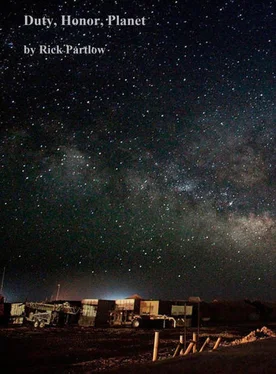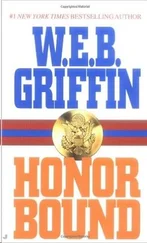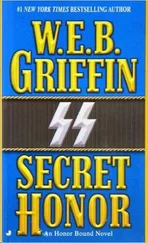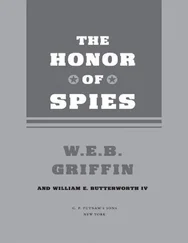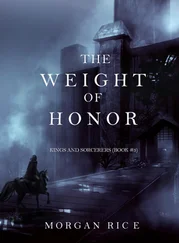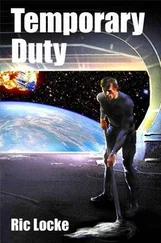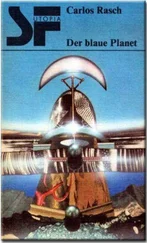That one man, for better or for worse, had been the President of the United States, giving the U.S. de facto leadership in the World Republic which had formed from the cooperation of nations during the recovery. This hadn’t set well with many of the Asian and Middle Eastern members of the new government, but there was very little they could do about it.
Val supposed it had been better that the U.S. had formed the world government than one of the less democratic powers of the previous century, but she knew better than anyone that power corrupts. And there was just too much power centered in the Republic government nowadays.
The view out the window said it all: the beautiful dream built within sight of the burgeoning reminder of an ugly past. What was just as visible as the city in the window was the ghost of her own reflection—a rather disturbing picture, given the analogy she had built up.
Not that her face was anything to be disturbed about. On the contrary, her looks had opened more doors for her than her father’s position had, as sad a commentary as that was on society. She had a perfect, heart-shaped face with deep, brown eyes and shoulder-length auburn hair, plus a body she had worked hard to keep trim. She was grateful for her appearance, but she wished it didn’t mean as much as it did. The more things changed…
“What’s so fascinating out there?” Glen leaned over her shoulder, speaking softly in her ear. She turned in her seat, looking at the young man who sat beside her. Glen Alan Mulrooney looked impeccable as always in his Italian suit, not a strand of his wavy blond hair out of place.
She should be incredibly happy with him, she supposed. He was handsome, intelligent and successful—master’s degree from Harvard, chief aide to one of the most powerful men in the Republic Senate at only thirty. And he loved her. She guessed she loved him, too—.most of the time.
“Just the city,” she answered him, shaking her head.
“Nervous about the speech?” he asked.
“Me?” She grinned. “Valerie O’Keefe, media darling, nervous about a little speech to the Republic Senate that’ll be broadcast live throughout the Solar System?” She laughed softly. “I’m scared to death.”
“You think this is bad, wait’ll you deliver your doctoral dissertation,” he kidded her.
She punched his arm. “Oh, you’re a big help.”
“I try, my love, I try. Seriously, though, don’t worry about it. You’ve rehearsed that speech about a hundred times—I should know; you’ve kept me up listening to it for the last two weeks. Jesus, I think I could give the damn thing by now!”
“I guess you’re right.” She gave him a grateful hug. “Nathan,” she called up to the man piloting the tiltrotor aircraft. “How long before we land?”
“About another ten minutes, Ms. O’Keefe,” he informed her, twisting around in his seat. As always, Val couldn’t help but stare at his eyes. They were unreadable black pools that seemed to draw her attention like a singularity—or a traffic accident.
Nathan Tanaka looked dangerous. She supposed that looking dangerous was a plus for a professional bodyguard; but for Tanaka, it seemed to come naturally. His face was lean and hard, like a wolf’s, with a jagged white scar that ran from his right temple down his jawline—she wondered why he’d never had it fixed. He wasn’t a big man, not more than a meter-seven, but his lean, compact frame was a mass of whipcord muscle beneath his black slacks and sweater. She’d never actually seen him carry a weapon, but she had the impression he didn’t need one.
“That is one strange fellow,” Glen muttered as Tanaka turned back toward the front. “Why’s your father keep him around, anyway?”
She shook her head. “I’ve no idea. But he’s been around since I was a little girl—at least since I was eleven. It’s funny: he’s been around so long, but I don’t really know anything about him.” She smothered a giggle behind her hand. “Except once I got a glance at his personnel file. You know what his full name is?”
“What?” Glen leaned forward conspiratorially.
“Nathan Bedford Forrest Tanaka,” she confided in a hushed whisper.
“Oh, my God!” Glen tried to stifle the laugh that fought its way past his clenched teeth.
“Shh!” Val hushed him urgently. “He’ll hear you!”
“Sorry.” Glen wiped a tear from his eye, struggling to keep from breaking up again. “Nathan Bedford Forrest Tanaka… oh, God, that’s priceless.”
* * *
The propwash from the tiltrotor’s now-vertically-canted engines tugged playfully at Val’s earth-toned skirt as she and Glen walked across the landing pad to meet her father’s limousine. It was long, black and anachronistic, but Senator Daniel O’Keefe was known for being old-fashioned in many things. The fact that he kept a personal car at all in a city as well designed for cars as a church was for rodeos was just one indication of this.
The chauffeur opened the rear, passenger-side door of the vehicle and a short, broad-shouldered man in his late sixties hopped out and swept Val into a warm embrace.
“Val, dearest!” he boomed. “You look wonderful, honey!” He held her out at arm’s length. He was a strong man, both physically and politically, and didn’t look a day over forty, except for his prematurely gray mane of hair, which he refused to consider coloring.
“I guess an associate professorship agrees with me, Daddy,” she said. “You’re looking as handsome as ever. You’re not too lonely up there in Edmonton, are you?”
“You know me, my dear,” he assured her. “I always manage to find entertainment somewhere. But let’s hurry and get to the Senate! Can’t have you being late for your political coming out, can we?”
“Daddy,” she protested as they ducked into the limo. “You make it sound like a cotillion.”
“I’m sorry, dear,” he said with a contrite laugh as the chauffeur closed the door after them. “I’ll plead an excess of parental pride.”
“Case dismissed, then.” She kissed him on the cheek, almost falling back into the seat as the car accelerated away from the pad with an electric hum from the flywheel-powered motor.
“So, Senator,” Glen interjected, “do you think His Majesty will honor us with his presence?”
“Don’t underestimate Greg Jameson, Glen,” O’Keefe cautioned. “We may disagree with him politically, we may even dislike him personally, but we have to respect him as a dangerous foe.” His expression lightening, O’Keefe leaned back and pulled out a fat cigar, lighting it casually. “But to answer your question: hell, no! Old Stoneface would never walk into an audience he couldn’t control. He’s too smart for that.”
“Know your enemy, eh sir?” Glen chuckled in admiration.
“Always, son,” O’Keefe replied, more than half serious. “Always.”
Glen peered out of the car windows as they drove through Capital City, virtually alone on the old secondary road. Police and custodial ducted-fan hovercraft flittered by above them, darting between the buildings; and lighter-than-air cargoships floated by high overhead, their sides lit up with advertising holos; but almost everyone else was confined to public transportation.
It was the buildings themselves that fascinated Mulrooney. He had toyed with civil engineering in his first year at college, intrigued by the possibilities in this age of reconstruction and restructuring, but an early meeting with Senator O’Keefe had pushed aside all other callings. Now he was a part of global politics, and that siren song was just too hard to resist.
Sometimes, though, when he passed under the shadow of the huge obelisk that was Capital Center, that song began to sound curiously like a dirge. Surely, he told himself, this was a pure example of the democratic process in action; but somewhere in the dark recesses of his mind, he couldn’t help but wonder how the caterwauling bunch of demagogues that called themselves the Republic Senate could ever run anything larger than a hot dog stand.
Читать дальше
